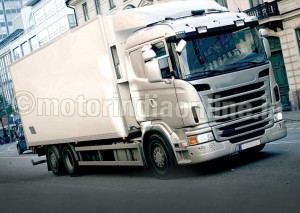Support for the Dearman Engine liquid air technology as a solution to the challenges of post-harvest food losses and air pollution gained prominence recently, following events in both the UK and India. This began with a call for urgent attention to cold chain development, discussed at the two-day Clean and Cool Summit on June 30 and July 1 in London, organised by the Liquid Air Energy Network (LAEN) and hosted by the Institution of Mechanical Engineers (IMechE). Alongside the Summit, the IMechE’s Head of Energy and Environment, Dr. Tim Fox, launched the Institution’s latest report, A Tank of Cold: Cleantech Leapfrog to a More Food Secure World.
The report explains how, in developing countries like India, up to 50 per cent of perishable food is lost before even reaching a plate because cold chains are rudimentary or non-existent. Dr. Fox, the lead author, stated: “One in eight people on the planet goes to bed hungry every night. That shocking fact is made worse when you consider that a third to a half of the food produced globally is never eaten.” Where cold chains are developing – in megacities such as Beijing and Delhi – the delivery component is powered by highly polluting diesel transport refrigeration units (TRUs), which contribute to chronic and toxic smog. Outdoor pollution has caused 6,00,000 premature deaths in India in a single year.
At the Summit, delegates including government officials from India, Malaysia and Tanzania, multinationals and academics discussed the next steps towards the creation of a joined-up ‘cold economy’. In particular, the Tanzania Horticultural Association commended the work done by the Dearman Engine Company and stated their desire to partner with Dearman on an eco-friendly solution for transport refrigeration.
Pawanexh Kohli, Chief Advisor for the Indian National Centre for Cold-Chain Development, explained that 88 per cent of cold chain facilities in the country are static cold stores with limited refrigerated transport. This means that, between refrigeration sites food products are often transported in un-refrigerated trucks. He stated that refrigerated transport solutions are needed. With an increase in consumer class, a rise in income and purchasing power, and easy consumer credit this problem is becoming even more apparent in India. Dr. Lisa Kitinoja of The Post-harvest Education Foundation, concurred, asserting that cooling and refrigeration could cut food losses by 50 per cent. The challenge comes in keeping food cool right from the farm to its arrival with the consumer.
TheIMechE’s report recommends investment in better cold chain infrastructure to improve food security, underpin development and help alleviate poverty. Dr. Fox continued: “At today’s prices, using a cryogenic engine technology such as the Dearman engine for the cooling of large refrigerated truck or rail containers, would cost between a fifth and a third of using diesel for the same job. This technology offers a clean and affordable cold chain solution for both the UK and developing countries, and we look forward to seeing the Dearman Engine Company take the next steps towards on-the-ground deployment of this important innovation.”
Following the launch of the report, Dr. Fox embarked on a tour of India to share the findings and recommendations with National and State Governments, industry and academia. Alongside this roadshow the Dearman Engine Company independently met with cold chain operators, equipment manufacturers, post-harvest loss experts, NGOs and members of the Indian Government and found that there is a strong appetite for field trials of the technology in mobile and static applications.
